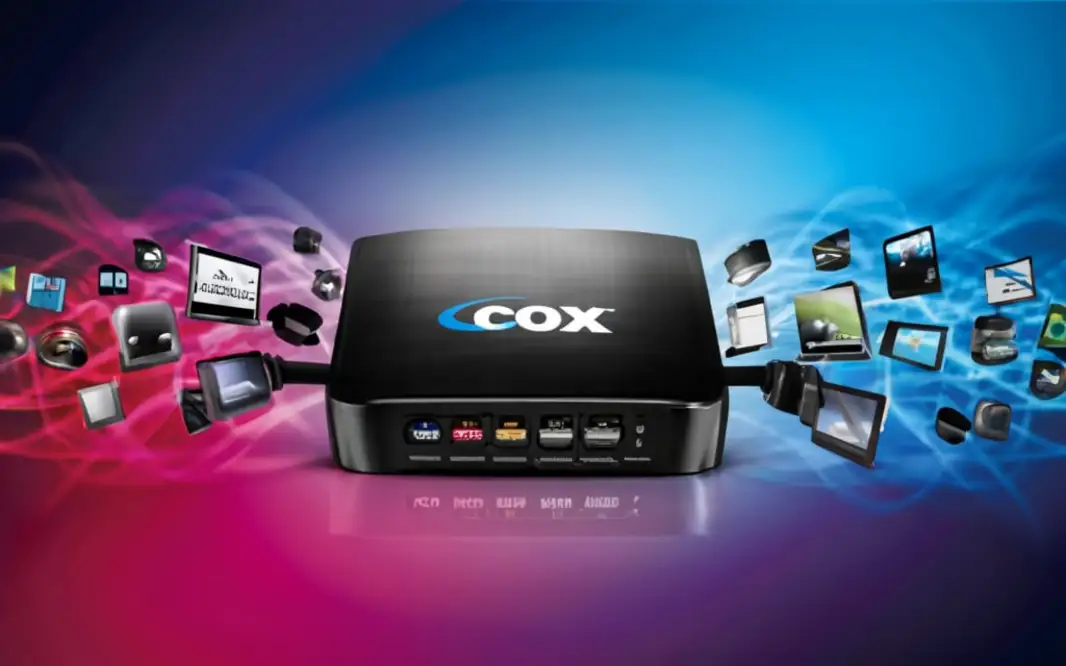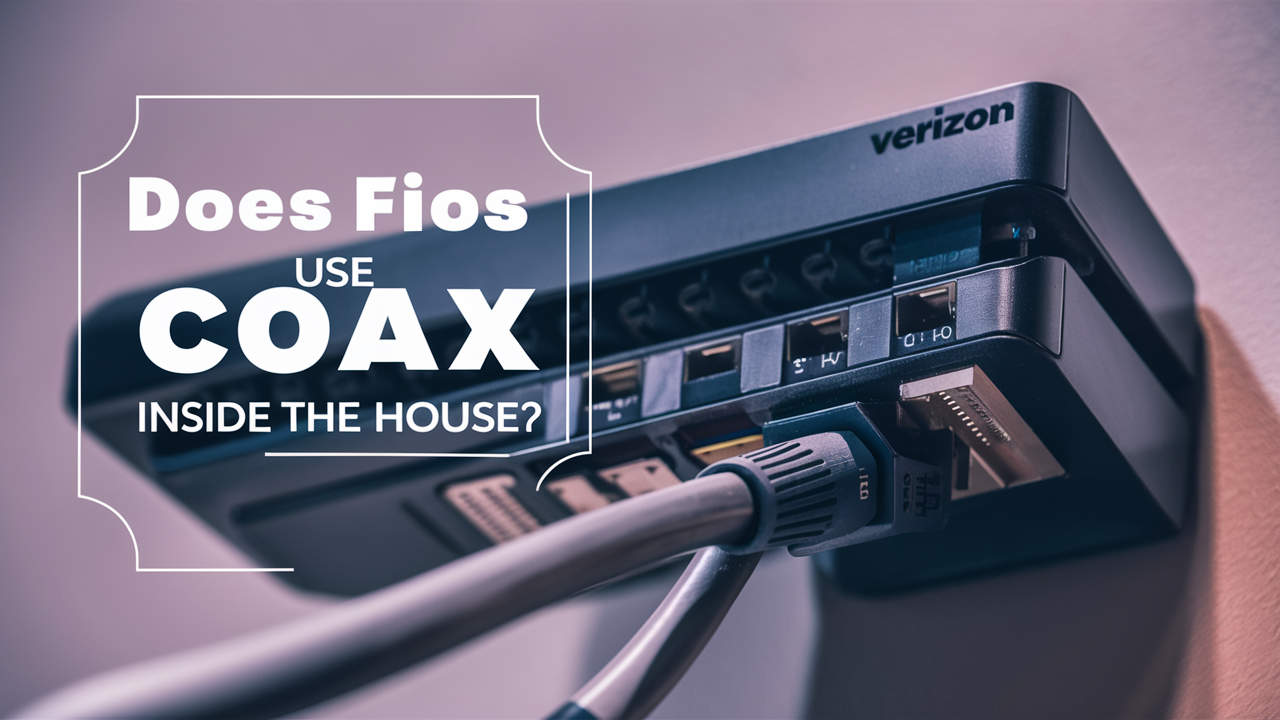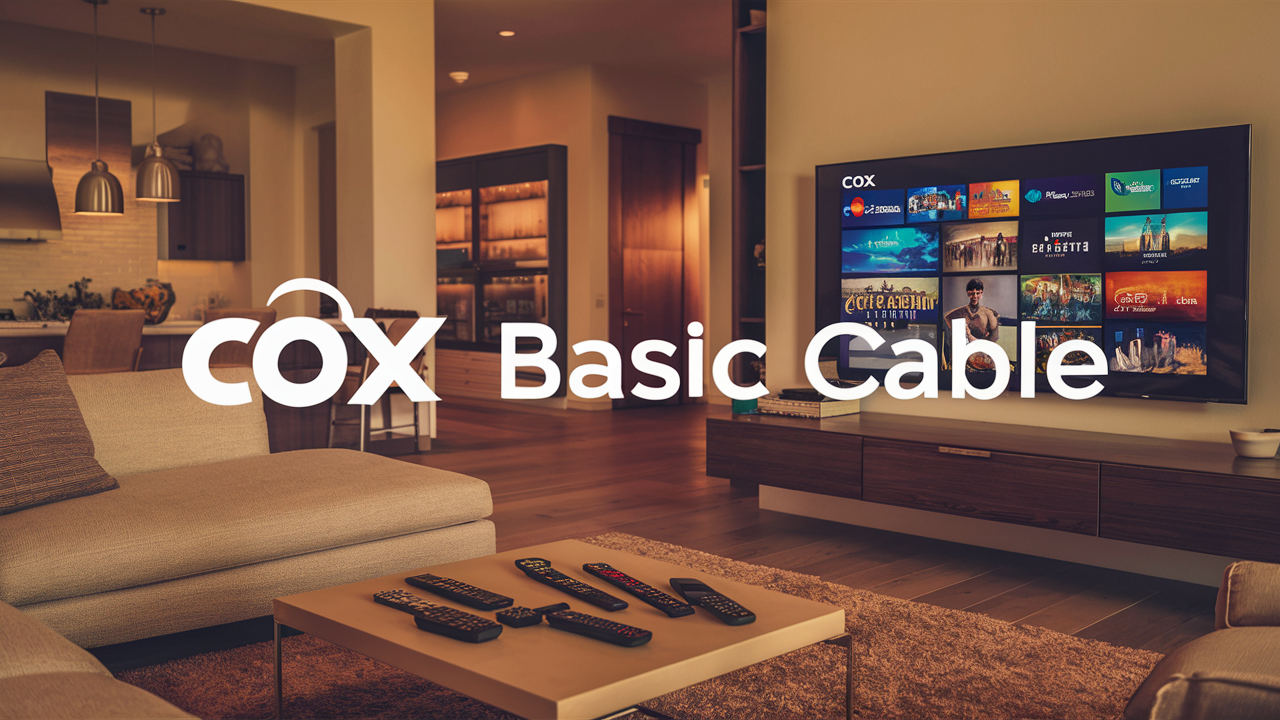Does Cox Give you a Free Modem?

Many internet service providers (ISPs) offer modem rentals, but the question remains: Does Cox Communications provide a free modem to its customers? This guide dives deep into Cox's modem policies, equipment options, and potential cost savings to help you make an informed decision for your home internet.
Cox's Official Modem Policy Explained
Understanding how Cox Communications handles internet equipment is crucial for managing your monthly bills and ensuring optimal performance. The core of their policy revolves around providing reliable internet service, and they offer customers choices regarding their modems. However, the concept of a "free modem" is often misunderstood. Cox, like most major ISPs, does not inherently provide a free modem as a standard offering for all new or existing customers. Instead, they present two primary pathways for obtaining the necessary equipment to connect to their network: renting a modem from Cox or purchasing your own compatible modem.
Cox's official stance is that customers are responsible for having a compatible modem to access their internet service. They provide a list of approved modems that meet their technical specifications. This allows for flexibility, but it also means the cost of the modem is a factor in your overall internet expenditure. While there might be promotional periods or specific bundles that include equipment at a reduced cost or for a limited time, a permanently free modem is not part of their standard service package. The rental option is presented as a convenient, albeit recurring, expense, while purchasing offers a one-time investment with potential long-term savings.
The "Free Modem" Myth: What You Need to Know
The idea that an ISP will simply hand over a modem for free is a persistent myth in the telecommunications industry. In reality, the cost of providing and maintaining equipment is factored into the overall price of internet service. When Cox, or any ISP, advertises "free" equipment, it's almost always tied to specific conditions, such as signing up for a particular plan, agreeing to a long-term contract, or as part of a limited-time promotional offer. These "free" periods are finite, and after they expire, customers are typically expected to either return the equipment or start paying a monthly rental fee.
For Cox, a truly "free" modem is an exception, not the rule. It's essential to scrutinize any offer that claims to include a free modem. Look for the fine print: What is the duration of the free period? What happens after that period ends? Are there any hidden fees or contract obligations? Often, what appears to be a free modem is simply a bundled service where the cost is amortized over the contract term, or it's a promotional incentive that requires a significant commitment. Customers who are seeking genuine cost savings should focus on understanding the long-term implications of renting versus buying, rather than chasing the elusive "free modem" that rarely exists in a sustainable, no-strings-attached form.
Understanding Cox's Equipment Options
Cox Communications offers customers a clear dichotomy when it comes to internet connectivity hardware: you can either lease their equipment or bring your own. This choice significantly impacts your monthly expenses and the level of control you have over your home network setup. Understanding the nuances of each option is key to making the most cost-effective and technically suitable decision for your internet needs.
Cox-Provided Modems (Rental)
When you sign up for Cox internet service, one of the most straightforward options is to rent a modem directly from Cox. This is often presented as the simplest path, especially for new customers who may not be familiar with modem specifications or compatibility requirements. Cox provides a range of modems, often including gateways (which combine a modem and a Wi-Fi router), designed to work seamlessly with their network infrastructure. The advantage here is convenience and support. If the rented equipment malfunctions, Cox is responsible for troubleshooting and replacing it, usually without additional charges beyond the rental fee. This can be particularly appealing for those who prefer not to deal with technical hardware issues themselves.
However, this convenience comes at a recurring cost. Cox charges a monthly rental fee for their equipment. This fee can vary depending on the type of modem or gateway you rent and the internet speed tier you subscribe to. While it simplifies setup and support, the cumulative cost of renting over several years can far exceed the purchase price of a comparable modem. Cox's rental fees are subject to change, and it's vital to confirm the current rates at the time of service activation. For customers who are on a tight budget or plan to keep their internet service for an extended period, the ongoing rental expense can become a significant financial burden.
Using Your Own Modem (BYOD)
The alternative to renting is to purchase your own modem and, if needed, your own Wi-Fi router. This is often referred to as the "Bring Your Own Device" (BYOD) option. Cox provides a list of approved modems that are compatible with their network. By purchasing your own modem, you eliminate the monthly rental fee, which can lead to substantial savings over time. This option requires a one-time upfront investment in the hardware, but once purchased, it's yours to keep and use as long as it remains compatible with Cox's service and your internet speed requirements.
The BYOD path offers greater control and potential for customization. You can research and select a modem that best suits your specific needs, such as higher speeds, better Wi-Fi capabilities (if you opt for a gateway), or advanced features. It also allows you to upgrade your equipment independently if you desire better performance or if your current modem becomes obsolete. However, this path comes with its own set of responsibilities. You are solely responsible for ensuring the modem you purchase is on Cox's approved list and meets the technical specifications for your internet plan. Furthermore, if you encounter technical issues with your self-provided modem, Cox's support may be limited, and you might need to troubleshoot the problem yourself or contact the modem manufacturer. Compatibility is paramount; an incompatible modem will not work, and Cox will not provide service.
Cost Analysis: Rental vs. Buying
The decision between renting a modem from Cox and purchasing your own is fundamentally a financial one. While convenience and support are factors, the long-term cost implications are often the deciding element for most consumers. A thorough cost analysis, considering current rental fees and the price of compatible modems, can reveal significant potential savings.
Typical Cox Modem Rental Fees (2025)
As of 2025, Cox Communications generally charges a monthly rental fee for its modems and gateways. These fees can fluctuate based on your location, the specific internet plan you subscribe to, and the type of equipment provided. However, typical monthly rental costs for a standard Cox modem or gateway often range from approximately $10 to $15 per month. Some higher-end gateways or specialized equipment might incur slightly higher fees. For instance, if you subscribe to a high-speed internet package that requires a more advanced modem, the rental price might be at the upper end of this range or even slightly above.
It's important to note that these fees are recurring. Over the course of a year, a $12 monthly rental fee amounts to $144. Over three years, this cost escalates to $432. Over five years, the total rental expense for a single modem can reach $720. These figures highlight the substantial cumulative cost associated with renting equipment from your ISP. Customers should always verify the exact rental fees applicable to their specific service agreement and location directly with Cox or by consulting their latest billing statements.
The Cost of Purchasing Your Own Modem
The upfront cost of purchasing a compatible modem can vary widely. Basic DOCSIS 3.0 modems, suitable for lower to mid-tier internet speeds (up to around 300 Mbps), can typically be purchased for between $50 and $100. For higher-speed plans (up to 1 Gbps or more), you'll need a DOCSIS 3.1 modem, which generally costs between $100 and $200. High-end, future-proof DOCSIS 3.1 modems with advanced features or integrated Wi-Fi 6 capabilities might cost upwards of $200 or more.
When considering purchasing your own modem, it's crucial to ensure it's on Cox's approved modem list and supports the speed tier you are subscribing to. A modem that is not compatible will not work, rendering the purchase useless. Additionally, if you need Wi-Fi, you will either need to purchase a separate Wi-Fi router or opt for a modem/router combo unit (gateway) that you own. The cost of a good quality Wi-Fi router can range from $50 to $200 or more, depending on its features and performance.
Return on Investment (ROI) for Buying
This ROI calculation strongly favors purchasing your own modem for most customers who plan to maintain their internet service for longer than a year. The initial investment is recouped quickly, and subsequent years of service represent pure savings. It's also worth noting that modem technology advances, but DOCSIS 3.1 is the current standard for high-speed internet and is expected to remain relevant for several years. Therefore, purchasing a DOCSIS 3.1 modem offers a good balance of performance and longevity, making it a sound investment.
Eligibility for Free Equipment or Discounts
While a permanently free modem is rare, there are specific situations and promotions where Cox might offer equipment at no charge or at a significantly reduced rate. Understanding these opportunities can help customers potentially lower their upfront costs or monthly expenses.
Current Promotional Offers and Bundles
Cox frequently runs promotional campaigns designed to attract new customers or encourage existing ones to upgrade their services. These promotions can sometimes include a period where a modem or gateway is provided for free. For example, a new customer signing up for a high-speed internet package might receive a free modem rental for the first 6, 12, or even 24 months. Similarly, bundling internet with TV and phone services might unlock special equipment offers. These deals are time-limited and often require a commitment to a specific contract length or service tier. It's crucial to read the terms and conditions carefully to understand when the "free" period ends and what the standard rental fees will be thereafter.
These offers can be found on Cox's official website, through their sales representatives, or via third-party advertising. Always compare the total cost of the bundled package over the promotional period and beyond to ensure it represents a genuine saving compared to purchasing your own equipment and subscribing to a standalone internet plan. The value of a "free" modem is diminished if the overall service cost is higher than a competitor's or a non-promotional Cox plan.
Low-Income Assistance Programs
In line with federal initiatives and corporate social responsibility, Cox may participate in programs designed to make internet service more accessible to low-income households. The most prominent of these is the Affordable Connectivity Program (ACP), which, if still active and funded in 2025, provides a discount on monthly internet service and can also cover the cost of eligible internet equipment, including modems. While the ACP is not directly a Cox program, Cox participates in it, allowing eligible customers to receive a credit towards their monthly bill and potentially acquire a modem at no cost through participating providers.
Eligibility for such programs is typically based on income level or participation in other government assistance programs (like SNAP, Medicaid, or SSI). Customers interested in these options should visit Cox's website or contact their customer service to inquire about their participation in any current federal or state assistance programs and how they might apply to internet service and equipment costs. These programs are designed to bridge the digital divide and can be a valuable resource for those who qualify.
Special Circumstances and Perks
Occasionally, Cox might offer equipment perks as a goodwill gesture or to resolve specific customer service issues. For example, a long-standing customer experiencing persistent service problems might be offered a free modem upgrade or a waived rental fee for a period as a form of compensation. These are usually not advertised and are handled on a case-by-case basis through customer service negotiations. It's unlikely that simply asking for a free modem will result in one, but demonstrating loyalty or highlighting significant service disruptions might open the door to such possibilities.
Another scenario could involve specific business or enterprise plans where bundled equipment might be part of a larger service agreement. However, for typical residential customers, these special circumstances are rare and not a reliable strategy for obtaining free equipment. The most consistent way to avoid modem rental fees remains purchasing your own compatible device.
How to Get Your Cox Internet Modem
Obtaining the necessary modem for your Cox internet service is a straightforward process, whether you're a new subscriber or an existing customer looking to change your equipment setup. Cox provides clear instructions and options to ensure you get connected quickly and efficiently.
For New Cox Customers
When you sign up for new Cox internet service, you'll be presented with your equipment options during the sign-up process. You can choose to:
Rent a Modem/Gateway from Cox: This is often the default and simplest option. Cox will provide you with a compatible device, which will be either shipped to your home or provided during a professional installation.
Use Your Own Compatible Modem: If you've already purchased a modem or plan to, you'll need to ensure it's on Cox's approved list. During sign-up, you'll typically enter the modem's MAC address to register it with Cox's network. Cox's website usually features a modem compatibility checker tool to verify your chosen device.
The choice you make will determine how you receive your equipment. If you rent from Cox, they will arrange for its delivery or installation. If you use your own, you'll be responsible for setting it up yourself, often with guidance from Cox's online resources or customer support.
For Existing Cox Customers
Existing customers have more flexibility and can change their modem setup at any time:
To Start Renting from Cox: If you've been using your own modem and decide you'd prefer to rent, or if your current rented equipment needs replacing, you can contact Cox customer service. They will arrange for a new modem to be sent to you or for a technician to install it. You'll then be billed the monthly rental fee.
To Switch to Your Own Modem: If you're currently renting from Cox and want to switch to your own modem to save money, you'll first need to purchase a compatible modem. Once you have it, you'll need to activate it with Cox. This typically involves visiting Cox's self-activation portal online or calling their technical support. You'll need to provide your new modem's MAC address. Once activated, you can return the rented Cox equipment to avoid further rental charges.
Upgrading Rented Equipment: If your current rented modem is no longer meeting your needs (e.g., not supporting higher speeds), you can contact Cox to inquire about upgrading to a newer gateway. This might involve a change in rental fees.
The process for existing customers usually involves a clear procedure for deactivating old equipment and activating new equipment, whether it's from Cox or your own purchase. Cox's website provides detailed guides for these transitions.
Self-Installation vs. Professional Installation
Cox offers both self-installation and professional installation options for internet service. The choice often depends on your comfort level with technology and the complexity of your home's wiring.
Self-Installation: This is the most common and cost-effective option, especially if you are using your own modem or if Cox is providing a simple modem rental. Cox will ship you the equipment (modem, cables, power adapter) and provide clear, step-by-step instructions, often with video tutorials. You'll connect the modem to the cable outlet, power it up, and then activate it online or via phone. Self-installation is generally free.
Professional Installation: If you're uncomfortable with self-installation, have complex wiring, or are signing up for bundled services that require more intricate setup, you can opt for a professional installation. A Cox technician will come to your home, set up the equipment, ensure optimal signal strength, and test the connection. There is typically a one-time fee for professional installation, which can range from $50 to $100 or more, depending on the service package and any special requirements.
For most users, particularly those opting to buy their own modem, self-installation is a perfectly viable and recommended route to save on installation fees.
Choosing the Right Modem: Key Considerations
Selecting the correct modem is paramount to ensuring a stable, fast, and reliable internet connection. With Cox, this involves understanding compatibility, your internet plan's speed, and future needs. Making an informed choice can save you money and frustration.
Cox's Compatibility Checker
Cox provides an essential tool on its website known as the modem compatibility checker. Before purchasing any modem from a third-party retailer (like Amazon, Best Buy, or directly from manufacturers), you should use this tool. You'll typically need to enter the modem's model number or its MAC address. The checker will then confirm whether that specific device is approved for use on the Cox network and if it supports the internet speed tier you subscribe to or plan to subscribe to.
Using the compatibility checker is a critical step to avoid purchasing a modem that Cox will not activate. This tool is updated regularly to reflect changes in Cox's network technology and approved hardware. Relying on this checker is the most reliable way to ensure your purchased modem will work seamlessly with Cox's service.
Modem vs. Gateway (Modem/Router Combo)
It's important to distinguish between a modem and a gateway:
Modem: This device connects your home to Cox's network. It translates the incoming signal from the cable line into a usable internet connection for your home. A standalone modem requires a separate Wi-Fi router to create a wireless network.
Gateway: This is an all-in-one device that combines a modem and a Wi-Fi router in a single unit. If you rent from Cox, they often provide gateways. If you buy your own, you can purchase a gateway or a separate modem and router.
Pros of a Gateway: Simplicity, fewer devices and cables, and often an easier setup. Cons of a Gateway: Less flexibility in upgrading Wi-Fi independently, sometimes performance can be a compromise compared to separate, high-end devices.
For customers seeking the simplest setup and who don't have complex networking needs, a gateway is a good option. However, for those who want more control over their Wi-Fi network, better Wi-Fi performance, or the ability to upgrade their router without replacing the modem, purchasing a separate modem and router offers more flexibility and potentially superior performance.
Matching Modem Specs to Your Speed Tier
Cox offers various internet speed tiers, from basic plans to gigabit speeds. Your modem's capabilities must match or exceed the speed of your internet plan. The primary technical specification to look for is the DOCSIS (Data Over Cable Service Interface Specification) version and the number of channels the modem supports.
DOCSIS 3.0: These modems are suitable for internet speeds up to around 300-400 Mbps. They typically have 8 download and 4 upload channels, but higher channel counts (e.g., 16x4, 24x8) offer better performance and stability, especially during peak usage times.
DOCSIS 3.1: This is the current standard for high-speed internet, capable of supporting speeds well over 1 Gbps. DOCSIS 3.1 modems are backward-compatible with DOCSIS 3.0 networks but offer significantly better efficiency, lower latency, and higher potential speeds. For any Cox plan exceeding 400 Mbps, a DOCSIS 3.1 modem is essential.
When checking compatibility, ensure the modem is rated for your specific speed tier. For example, if you have a 500 Mbps plan, a DOCSIS 3.0 modem might not be sufficient, and you'll need a DOCSIS 3.1 modem that Cox has approved for that speed. Cox's compatibility checker will usually specify which speed tiers a modem can support.
Future-Proofing Your Investment
While it's impossible to perfectly future-proof any technology, choosing a modem with capabilities beyond your current needs can extend its useful life and save you money in the long run. If you anticipate upgrading your internet speed in the next few years, or if Cox introduces new service tiers, investing in a DOCSIS 3.1 modem now will likely prevent you from needing to buy a new modem again soon.
Consider a DOCSIS 3.1 modem that supports a higher channel count and has robust Wi-Fi capabilities if you opt for a gateway. For instance, a modem rated for speeds up to 2 Gbps, even if you currently have a 1 Gbps plan, provides headroom for future upgrades. This proactive approach ensures that your hardware won't become a bottleneck as your internet service needs evolve. Remember to check Cox's compatibility list even for future-proofing purchases to ensure they will be supported.
Troubleshooting and Support for Cox Modems
Even with the best equipment, internet issues can arise. Understanding how to troubleshoot common modem problems and knowing when to contact Cox support is crucial for maintaining a stable connection.
Common Modem Issues and Solutions
Here are some frequent issues and their potential solutions:
No Internet Connection:
Check Cables: Ensure all cables (coaxial, Ethernet, and power) are securely connected at both ends.
Restart Modem: Unplug the modem's power cord, wait 30-60 seconds, and plug it back in. Allow several minutes for it to fully boot up.
Check Lights: Observe the status lights on your modem. Consult your modem's manual or Cox's support site to understand what the lights indicate (e.g., solid power, blinking upstream/downstream, solid online).
Test Directly: If using a separate router, connect a computer directly to the modem via Ethernet to rule out router issues.
Slow Internet Speeds:
Restart Equipment: A simple reboot can often resolve temporary slowdowns.
Check Speed Test: Run an internet speed test (e.g., Speedtest.net) and compare results to your subscribed plan. Ensure you are testing from a wired connection for accuracy.
Reduce Network Load: Too many devices streaming, downloading, or gaming simultaneously can slow down your connection.
Check Modem Specs: Ensure your modem is capable of handling your subscribed speed tier (DOCSIS 3.0 vs. 3.1, channel count).
Router Placement: If using a Wi-Fi router, ensure it's placed in a central location, away from obstructions and interference.
Intermittent Connection Drops:
Check Signal Strength: This can be complex and may require Cox's assistance. Loose coaxial connections or line issues can cause drops.
Firmware Updates: Ensure your modem's firmware is up-to-date. If you own your modem, you may need to check the manufacturer's site. If you rent from Cox, they manage firmware.
Overheating: Ensure the modem has adequate ventilation and is not overheating.
When to Contact Cox Support
You should contact Cox support if:
Self-troubleshooting fails: After trying the basic steps above, if your internet is still not working or is performing poorly.
Equipment Malfunction: If your modem appears to be faulty (e.g., no lights, error lights indicating a hardware problem). If you rent from Cox, they will replace faulty equipment. If you own your modem, they can help diagnose if the issue is with their service or your equipment.
No Service: If there is a widespread outage in your area, Cox's automated systems or customer service will provide information.
Activation Issues: If you are having trouble activating your own modem or a new modem provided by Cox.
Signal Problems: If you suspect issues with the cable line coming into your home, Cox technicians are equipped to diagnose and repair these.
When you contact Cox support, have your account information ready, including your modem's MAC address if you are using your own. Be prepared to describe the issue clearly and detail the troubleshooting steps you have already taken. This will help them diagnose the problem more efficiently.
Alternatives to Cox Internet
While this guide focuses on Cox, it's always wise to be aware of alternative internet service providers in your area. The availability of different providers and technologies can significantly impact pricing, speeds, and equipment options. Depending on your location, you might have access to services from companies like:
AT&T: Offers DSL, fiber, and fixed wireless internet.
Verizon: Provides Fios (fiber) and 5G Home Internet.
Xfinity (Comcast): A direct competitor in many regions, offering similar cable internet services.
T-Mobile Home Internet / Verizon 5G Home Internet: Fixed wireless options that can be competitive for some users.
Local Fiber Providers: Many smaller, regional companies are rolling out fiber optic networks that often offer superior speeds and reliability.
Satellite Internet: Providers like HughesNet and Viasat are options for rural areas where other services are unavailable, though they typically have higher latency and data caps.
When comparing providers, always consider the total cost of ownership, including modem rental fees, versus the cost of purchasing your own equipment. Look at advertised speeds versus actual speeds experienced in your area, contract terms, data caps, and customer service reviews. Sometimes, switching to a different provider might offer better value or superior service, potentially including a truly free modem as part of a promotional package, though the caveats discussed earlier would still apply.
Conclusion: Your Cox Modem Decision
In conclusion, the direct answer to "Does Cox give you a free modem?" is generally no. While Cox provides internet service, they do not include a free modem as a standard part of their offering. The most common scenarios involve either renting a modem from Cox for a recurring monthly fee or purchasing your own compatible modem. Promotional offers may occasionally include a period of free rental, but these are temporary and come with specific terms.
For most customers, the most financially sound strategy is to purchase a compatible DOCSIS 3.1 modem. The upfront cost, typically between $100 and $200, is quickly recouped, often within the first year, compared to the cumulative cost of monthly rental fees, which can exceed $700 over five years. This approach not only saves money but also gives you greater control over your home network hardware. Always utilize Cox's modem compatibility checker to ensure your purchased device will work with their service. By understanding your options, performing a cost-benefit analysis, and choosing wisely, you can optimize your Cox internet experience and avoid unnecessary expenses.





